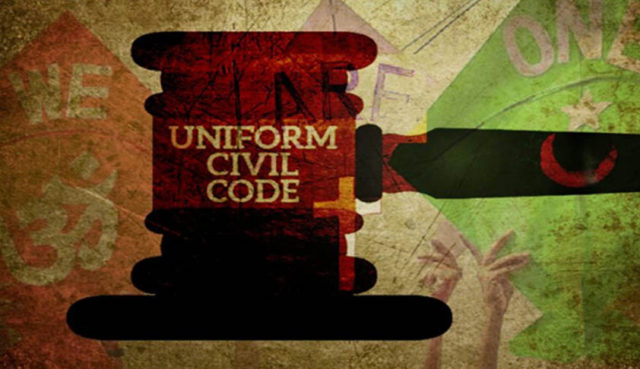– By Ranjabati Ray.
Just a few months ago there was this whole ruckus of banning triple talaq which triggered the present government to come up with a drive to codify a Uniform Civil Code.
This got me thinking as to how the country would adopt to the particular situation (not well, judging from the immediate reactions, but whatever).
So anyway, I wanted to analyze it historically, because I am a huge history buff, and this is what I came up with:
Religion In India And The Problem Of Diversity
Religion in India has always played a driving force towards constructing the laws of the community. In fact, in the early ages, religion and laws, at least in India were considered to be one and the same thing.
The laws of the community from the time of the earliest civilization were given the mask of being a religious command by the Almighty a.k.a. God.
This was mainly because human beings have an innate fear of the unknown within them and it was through this fear only that rules and regulations were enforced by rulers and leaders who in turn were supposed to be God-send.
If we look a little bit back into time, we can see that over the years, ranging from Hindu rulers like Chandragupta Maurya to Buddhist rulers such as Ashoka or the Muslim rulers of the Delhi Sultanate and the Mughals, whoever had invaded any land in the country, had tried to make rules and regulations to propel their personal religious beliefs forward.
Subsequently, a number of religious sects had arisen in India, ranging from the existing Hinduism, Jainism, and Buddhism to new dimensions such as Zoroastrianism, Sikhism, Islam, etc, followed by constant wars for religious dominance and defense of one’s religion.
Relatively, the first action made towards binding all the above mentioned religious sects together under one law was made by the British rulers when they tried to form a Uniform Civil Code applicable to everyone, which was again aimed at while creating the Constitution.

However, in both the above cases , when time came for India as a whole to enact its personal laws related to marriage, inheritance, etc. the leaders were baffled by the sheer number of diversities and hence came to a conclusion to make separate laws for most sects regarding personal laws, so as to appease them.
The intent of the makers however was to remove these differences over the subsequent years which can be construed from Article 44 of the Indian Constitution where the State is directed to aim at forming a Uniform Civil Code by the time they think fit and to abolish such different forms of personal laws.
If Goa Saw Success With A Uniform Civil Code, Will India Get The Same?
Over the years, the country has evolved and so has the mindsets of the people.
Law has become different from religion. Laws such as criminal laws, property laws, IPRs have gained uniformity and are applicable to the whole of India. However, personal laws do not find such uniformity.
The Preamble of the Indian Constitution contains the word “secular” in it but the entire purpose of such a word is lost wherein the personal laws of the country are separating the people on the basis of religion.
But, is the whole of India ready for employing the concept of Uniform Civil Code like the state of Goa?
Well, according to me: “NO”! Sure, the present government had made a huge hue and cry with the fact that they wanted to abolish certain trends in the Islamic personal laws in the country such as Triple Talaq and multiple marriages, but, let’s just take a pause there and think about it.
Why only focus on a certain sect of the country. Sure these are negatives that should be removed from the society but does it really mean that the Islamic community should face a change because of it?
I being a law student, have actually read all the personal laws and let me tell you something, the Hindu personal laws are not that flawless either.
So here’s why I think that it is not the right time to introduce the Uniform Civil Code in the country’s political scenario, because the code which will be drafted will be naturally heavily influenced by the Hindu personal Laws which can be derived from seeing the trends of the policies introduced by the present government and hence, the whole motive of establishing a Uniform Civil Code will be lost forever.
You’d also like to read : Can We Please Stop Alienating And Neglecting The North-East From The Rest Of India
Winternship Partners:

































No Law is flawless. Be it IPC, Contract Act, International Conventions or any regional codes.